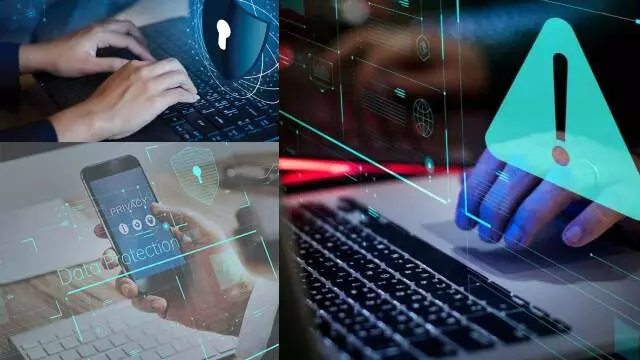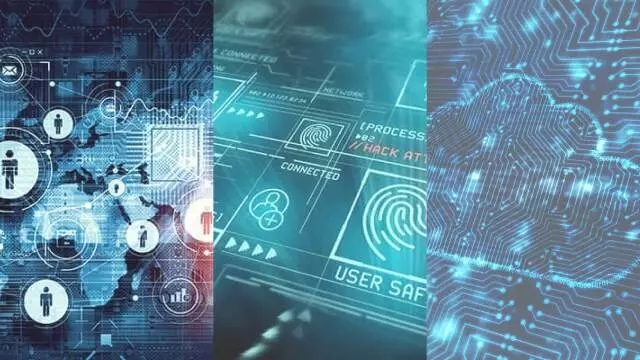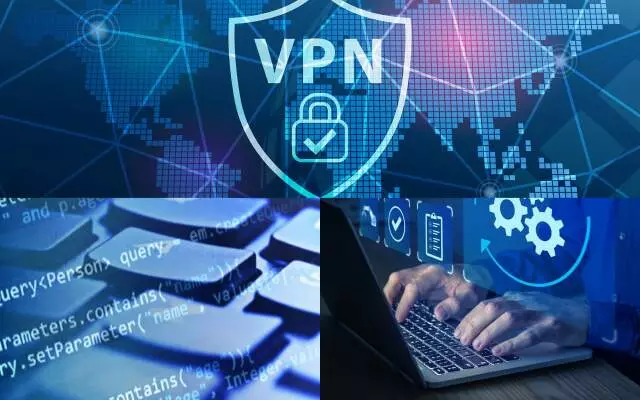Understanding the Concerns about Internet History Visibility on Wi-Fi
The internet has become a vital tool in our daily lives, with many relying on Wi-Fi connections to access it. However, with this convenience comes concerns about the visibility of our internet history. Wi-Fi routers can store the websites we visit and the data we exchange with them, leading to privacy issues.
Moreover, if the Wi-Fi router is hacked, sensitive information such as financial or personal data can fall into the wrong hands. Understanding these concerns is essential in ensuring our online activities remain protected. By implementing proper security measures, such as using encryption and regularly changing passwords, we can reduce the risk of our internet history being compromised. It is also important to be mindful of the information we share online and to use reliable sources for sensitive transactions. Protecting our internet privacy is a crucial step in ensuring a safe and secure online experience.
How Wi-Fi Connections Can Affect Internet History Visibility
Wi-Fi connections can significantly impact the visibility of our internet history. When we connect to a Wi-Fi network, our devices transmit data that can be stored on the router, including the websites we visit and the information we exchange with them. This data can be accessed by the Wi-Fi owner or potentially hacked by malicious individuals. Additionally, if the Wi-Fi network is unsecured, it can allow strangers to access our internet history. Public Wi-Fi networks, such as those found in coffee shops or airports, are particularly vulnerable to these risks. To minimize the visibility of our internet history, it’s crucial to use secure Wi-Fi connections and to avoid using public Wi-Fi networks for sensitive transactions. We should also ensure our devices and Wi-Fi routers have the latest security updates and use strong passwords to prevent hacking attempts. By being mindful of these risks, we can maintain control over our internet privacy and the visibility of our internet history.
Methods for Protecting Your Internet History on Wi-Fi
Protecting your internet history on Wi-Fi is crucial for maintaining your online privacy and security. Here are some methods you can use:
- Use a Virtual Private Network (VPN) – A VPN encrypts your internet connection, making it more secure and private.
- Enable encryption on your Wi-Fi router – This will prevent unauthorized access to your internet history and other sensitive data.
- Use a secure Wi-Fi network – Public Wi-Fi networks are often unsecured, so it’s best to use a secure network at home or work.
- Regularly change your Wi-Fi password – This will prevent hackers from accessing your internet history.
- Be mindful of what you share online – Avoid sharing sensitive information on unsecured websites and be careful of clicking on suspicious links.
By taking these steps, you can ensure that your internet history remains private and secure, even when using Wi-Fi connections. Remember, it’s always better to be proactive when it comes to protecting your online privacy and security.
Can Your Internet Service Provider (ISP) See Your Internet History on Wi-Fi?
Yes, your Internet Service Provider (ISP) can see your internet history on Wi-Fi. Your ISP provides the connection to the internet, and as a result, they can monitor and record your online activities. This includes the websites you visit, the data you exchange with them, and the time you spend online. This information can be used for a variety of purposes, including targeted advertising and to detect potential security threats.
However, there are ways to prevent your ISP from seeing your internet history. One of the most effective methods is to use a Virtual Private Network (VPN). A VPN encrypts your internet connection, making it difficult for your ISP to monitor your online activities. Additionally, you can use secure Wi-Fi networks and enable encryption on your router to further protect your internet privacy.
It’s important to be mindful of your internet privacy and to take steps to protect your internet history on Wi-Fi. While your ISP can see your internet history, you can still take steps to reduce their visibility and maintain your online privacy.
Are Public Wi-Fi Networks Safe for Browsing?
Public Wi-Fi networks, such as those found in coffee shops, airports, or public libraries, can be convenient for accessing the internet. However, they also pose significant risks to your online privacy and security.
Public Wi-Fi networks are often unsecured, meaning that anyone on the same network can access your internet history, personal information, and other sensitive data. Hackers can easily intercept the data you transmit over an unsecured Wi-Fi network, putting your information at risk.
Additionally, public Wi-Fi networks can be used by malicious individuals to spread viruses or steal sensitive information. This makes it important to be cautious when using public Wi-Fi networks for sensitive transactions, such as online banking or making purchases.
To stay safe on public Wi-Fi networks, it’s best to use a Virtual Private Network (VPN), which encrypts your internet connection and protects your online activities. You should also be careful of clicking on suspicious links and avoid accessing sensitive information on public Wi-Fi networks.
In conclusion, public Wi-Fi networks can be convenient, but they are not always safe for browsing. It’s important to take steps to protect your online privacy and security when using public Wi-Fi networks.
How to Secure Your Internet History on Public Wi-Fi
When using public Wi-Fi, it’s important to secure your internet history to protect your online privacy and security. Here are some steps you can take:
- Use a Virtual Private Network (VPN) – A VPN encrypts your internet connection, making it more secure and private.
- Avoid accessing sensitive information – Don’t use public Wi-Fi for sensitive transactions, such as online banking or making purchases.
- Be cautious of suspicious links – Don’t click on links from unknown sources, as they may be malicious and put your information at risk.
- Keep your software updated – Ensure that your device and any applications you use are up to date with the latest security updates.
- Enable encryption on your device – Encrypting your device can help protect your internet history and other sensitive data.
By following these steps, you can reduce the risk of your internet history being exposed on public Wi-Fi networks. Remember, it’s always better to be proactive when it comes to protecting your online privacy and security.
Tools to Check If Your Internet History is Visible on Wi-Fi
If you’re concerned about the visibility of your internet history on Wi-Fi, there are tools that can help you check if your information is being exposed. Here are some of the most effective tools:
- Wi-Fi Analyzer – This tool can show you the strength and security of the Wi-Fi network you’re connected to, as well as any other Wi-Fi networks in the area.
- Wireshark – This is a network protocol analyzer that can be used to monitor and analyze your internet traffic, including your internet history.
- HTTPS Everywhere – This browser extension can encrypt your internet connection, making it more secure and private.
- Anti-Virus and Firewall Software – These programs can help protect your online privacy and security by detecting and blocking potential threats.
By using these tools, you can check if your internet history is visible on Wi-Fi and take steps to protect your online privacy and security. Keep in mind that it’s always better to be proactive when it comes to protecting your information, especially when using Wi-Fi networks.
Importance of Understanding and Protecting Your Internet History on Wi-Fi
In conclusion, understanding and protecting your internet history on Wi-Fi is important for maintaining your online privacy and security. Public Wi-Fi networks can be convenient, but they also pose significant risks to your online privacy and security. By taking steps to secure your internet history, such as using a Virtual Private Network (VPN) and avoiding accessing sensitive information on public Wi-Fi, you can reduce the risk of your information being exposed.
Additionally, there are tools available that can help you check if your internet history is visible on Wi-Fi and take steps to protect your online privacy and security. By using these tools and being mindful of your online activities, you can reduce the risk of your information being compromised and maintain your online privacy and security.
In today’s increasingly connected world, it’s important to be aware of the risks associated with using Wi-Fi and to take steps to protect your internet history. By doing so, you can maintain your online privacy and security and avoid potential security threats.



